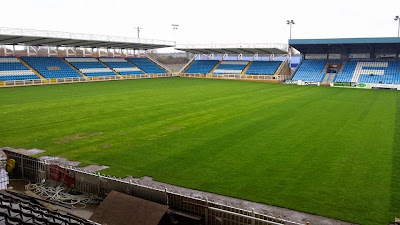 The tremendous conveyor belt of talent that had produced scrum-halves of
the quality of Ray Evans, Tommy Smales and Don Fox in the fifties
continued into the sixties. When Carl Dooler made his debut as a fresh-faced teenager in December 1960 he had ahead of him in the pecking order the international star Don Fox, a living legend at the club, who had over 200 first team games under his belt. Within three seasons Dooler had made the scrum-half jersey his own and Don Fox was operating at loose-forward.
The tremendous conveyor belt of talent that had produced scrum-halves of
the quality of Ray Evans, Tommy Smales and Don Fox in the fifties
continued into the sixties. When Carl Dooler made his debut as a fresh-faced teenager in December 1960 he had ahead of him in the pecking order the international star Don Fox, a living legend at the club, who had over 200 first team games under his belt. Within three seasons Dooler had made the scrum-half jersey his own and Don Fox was operating at loose-forward.
A product of the prolific Sharlston nursery, Carl Dooler was limited in his first two years of senior rugby to filling in when Fox was injured. Despite this, he still did enough to impress the county selectors. In September 1962, with Fox sidelined, Dooler was picked as Yorkshire scrum-half against both Cumberland and Lancashire. This meant effectively that Rovers had the best two number sevens in Yorkshire on their books. When Fox was at full fitness he was still first choice though, and so Dooler played a few games at stand-off, although Ivor Lingard was competing for that position too. It was not until the arrival of Johnny Malpass as coach in 1963 that a solution to the problem of an abundance of half-backs was neatly resolved. Dooler was now the main man, Don slotted in at 13, and Carl enjoyed five unbroken seasons as the lynchpin of Rovers team. He suffered a setback in 1965 when the club sold both Don Fox and Terry Ramshaw which caused Carl to question the club’s ambition. An ensuing disagreement was settled and Carl was rewarded by being selected to tour Australia with Great Britain in the summer of 1966. Despite an exemplary tour, playing 15 matches, a test cap eluded him. He was a non-playing substitute for one test, but that was as close as he got.
The following domestic season Dooler played in two finals, and his fortunes in each couldn’t have been more contrasting. In the 1966 Yorkshire Cup final against Hull KR Dooler was unjustly sent-off for tripping and Rovers went down to a disappointing 25-12 defeat. Being found not guilty by the disciplinary panel was no consolation. However, a few months later at Wembley Dooler carried all before him with a lively display in the Challenge Cup final. Rovers won the Cup for the first time and Dooler landed the Lance Todd trophy. By December though Carl was on the transfer list, unhappy with his terms. This gave a chance to another promising youngster called Steve Nash. Dooler meanwhile played his final game for Rovers in August 1968 and eventually got a transfer to Hull KR in January 1969, where his appearances were restricted by a back injury. He also played the odd game for both York and Batley before retiring in 1973. In all, he played 199 games for Featherstone and scored 62 tries.

